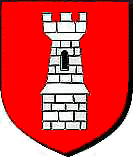
|
C/S Tools: |

|
C/S Tools: |
C/Sing Sessions
When the C/S receives a folder from the auditor there is a certain routine he goes through to make sure auditor and pc stays on the right track. He inspects the session reports in a certain sequence before he grades the session and approves or writes up the instructions for the next session.
1. First he looks at the Examiner Report. From that he can see what the pc thought about the session. It should be F/N VGIs and hopefully with a brief positive statement from pc.
2. Then he looks at his instructions for the session to see what was supposed to be done. He then looks thorough the session report to make sure the auditor actually carried it out. He checks each step to see it was done.3. Then he reads the work sheets. He checks that each process was correctly done, the right commands used and each action carried to EP.
4. If there are any Listing and Nulling actions he inspects this action carefully as "Out-lists" can be very upsetting to a case.
5. He checks that each process run was taken to the correct EP and that the whole session was ended of on F/N VGIs.
If the C/S can't read the worksheets due to bad
handwriting or lack of data he sends the folder back to the auditor for
clarification. The auditor should overprint unreadable words with a red pen. The
C/S sees to that his auditors catch up on writing understandable reports the
first time and can have them train in handwriting drills to catch up on speed
and clarity. The auditor should not have to spend a lot of time after session
clarifying worksheets. He simply have to drill to write fast and readable, keep to essentials
and quickly clarify worksheets after session.
|
pc: N.N.
Date xx/xx/xx FLUNK! - BER at Exams +
Errors.
Mr. C/S. |
|
If the session didn't go well the |
6. Having come so far the C/S grades the session. He uses the following guide lines:
Session Grade: The C/S grades the auditors session as one of the following: Very Well Done (VWD), Well Done (WD), Well Done by Exam, No Mention, Flunk.
VWD if all is okay and the session is exactly by the book.
WD for F/N, VGIs at session end and at Examiner. No major tech errors but not exactly by the book.
WD By Exam for F/N, VGIs at session end and at Examiner but Admin and session actions not OK.
No Mention if the session end was F/N, VGIs but the F/N wasn't present at the Examiner, and provided there were no major tech errors in the session.
FLUNK for any of the following:
F/N did not get to Examiner and was not present at session end. Major errors or flubs occurred like no EP, unflown ruds, mislisting, etc. C/S not followed. Auditors Rights errors occurred. No F/N and BIs at Examiner, etc.
7. If the session is less than Very Well Done, the C/S should write a study order for the auditor to do. This is usually in the form of a Cramming Order. This is written in 3 copies. One stays in the folder. One is given to the auditor (with the folder); and one is sent to the Cramming Officer who does the assignment with the auditor.8. If any auditor goof had no influence on the pc, the C/S don't correct it on the case, of course. He inspects how well the pc is doing on the program and if all is going fine, he simply orders the auditor to continue on that program.
9. The C/S ensures quickly that the program is working and the case is correctly programmed. If the session ended on F/N VGIs and the processes are producing TA the program should simply be continued. If all isn't right there would be a number of bad indicators present in the pc, including lack of TA. If it is an auditor error the auditor is crammed and drilled so it doesn't happen again. Anything that wasn't optimum such as overrun or out ruds are addressed before the program is continued. The pc needs to be set-up for any Major Action which is simply F/N VGIs showing before such an action is started.
10. The C/S now checks the auditors suggested C/S. If it is in line with the program he usually ok's it - possibly with a correction or two.
|
Pc has Bad Indicators |
Short FES made |
C/S writes short repair |
11. If the case isn't running well the C/S has to get to work for real. He may order an FES, going a few sessions back, where the case was running well. When he finds the bug he writes up a short repair program to fix the problem so pc can continue on the main program, which is the Grade Chart.
The guiding rule here is, that the pc has to be F/N, VGI before any Major Action on the case is undertaken; each Grades process is a Major Action.
|
Home Search Level 0 Level 1 Level 2 Level 3 Level 4 Level 4Pro Level 5 C/Sing Solo |
|
|
| Tech terms | Scales | Axioms | Drills | Checksheets | Processes | Prep. lists | C/S terms | C/S tool | Grades | Cramm | Points | KTW | Online | |